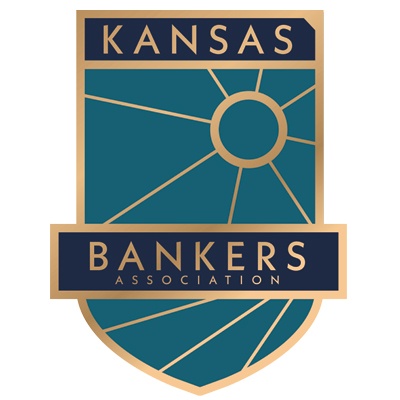We are over one and a half years into the COVID-19 pandemic, over 500 days and 13,000 hours … not that anyone’s counting. We’ve all gotten the hang of working from home and managing our business from home. And if you haven’t taken steps to serve your customers from home, there’s no time like the present. Banks, large and small, are in the unique position of helping consumers and businesses obtain and maintain access to credit during these unprecedented times. Inevitably, your customers have needed to originate new loans; defer, extend, and modify existing loans; and open deposit accounts online, among other things. As a result, the use of “remote channels” has gone from “nice to have” to “need to have.” Over the past year, we have counseled many bank clients in their migration to electronic signatures. Below we highlight both practical and legal considerations that may need to be tackled as you consider implementation thereof.
Electronic signatures
First, if you are considering using e-signatures or increasing use of e-signatures for certain loan types, you should consider the following:
1. Are e-signatures lawful?
Yes, e-signatures are generally legal and enforceable pursuant to the Electronic Signatures in Global and National Commerce Act (E-Sign), governing consumer and commercial transactions, and state laws adopted from the Uniform Electronic Transactions Act (UETA), including in Kansas. There are, however, exceptions to this general principle. Many of those exceptions — such as laws governing wills, codicils, or testamentary trusts — are not relevant in the consumer or commercial financial law context. However, one noteworthy exception is as follows:
- Uniform Commercial Code (UCC). E-Sign and UETA do not apply to contracts governed by the UCC other than Articles 2 and 2A (Sales). However, the UCC has been amended to accept electronic signatures where they are excluded from coverage. The importance of this is that electronic signatures are permissible under relevant provisions of the UCC.
2. If I want to begin using e-signatures in a loan transaction, do my customers have to consent to conduct transactions electronically? If so, how do I obtain consent?
Yes, banks must obtain the appropriate level of consent from the customer before conducting the transaction electronically. The level of consent required depends upon whether your borrower is a business or a consumer. If originating a commercial transaction, consent is driven by UETA where the parties must agree to conduct the transaction electronically. Whether there has been agreement to conduct the transaction electronically is determined from the context and surrounding circumstances, including the parties’ conduct. In practice, consent could occur by simply asking the business customer whether they would like to receive their documents via email or by conducting business via email. Alternatively, banks can obtain consent from business customers, which is typically the case when using an e-signature platform.
If the customer is a consumer, he/she must have affirmatively consented to conduct the transaction electronically (without withdrawing consent) and, prior to such consent, must be provided with E-Sign disclosures per 15 U.S.C. § 7001(c)(1). These disclosures are available in e-signature platforms and may also be provided by your document vendor or loan origination system provider.
3. What documents can be signed via e-signatures — for example, can the Promissory Note and Mortgage be signed electronically?
Generally speaking, all documents are valid when signed electronically, unless specifically excluded by E-Sign (as described above) or under UETA. This includes loan modifications, Promissory Notes and recordable instruments. However, as it relates to the Promissory Note and recordable instruments, such as a mortgage, we suggest banks continue to obtain a wet signature for the reasons described below. This may result in a bifurcated approach in obtaining signatures on documents. For example, you may be capable of using electronic means to send and obtain signatures on documents prior to closing. At closing, however, lenders should consider obtaining wet signatures.
The Promissory Note
Nothing in E-Sign or UETA prohibit use of an e-signature on a promissory note. However, because paper promissory notes are “negotiable instruments” under the UCC, having “possession” of the “original” signed note is legally significant. In order to create parity in an electronic world, E-Sign and UETA set forth special rules as it relates to electronic promissory notes. Specifically, the note must be considered a “transferrable record” in order to be considered a negotiable instrument. If the note is a “transferrable record,” the person identified as in “control” of the record becomes the equivalent of a “holder” under the UCC. In order to be considered a “transferrable record,” the certain criteria must be met, which in part requires “a single authoritative copy of the transferrable record” and that each copy of the authoritative copy and any copy of a copy be readily identifiable as a copy. This requires use of an appropriate storage system, be it homegrown or a third-party e-vault, that is capable of meeting the requisite criteria.
Without following the requisite criteria, you could find yourself in court unable to “produce the original Note,” (aka the “authoritative copy”) like during the Great Recession, where lenders were often unsuccessful. As a result, given this significant risk, many lenders require a wet signature on the Note or, alternatively, Notes over a certain dollar threshold or on lower-risk loans in order to minimize this risk.
Recordable instruments/real property documents
Whether or not recordable instruments can be signed electronically is a matter of state law. In Kansas, UETA and the Uniform Real Property Electronic Recording Act (URPERA) allow e-signatures and electronic recording, but Register of Deeds offices are only required to accept e-signatures and electronic recording to the extent that they have the technology to support it.1 Counties who permit e-recording can be found here. This results in significant variability in acceptance, rendering it nearly impossible for banks to engage in transactions involving real property to accept e-signatures on recordable instruments uniformly.
As a result, banks may reasonably require wet signatures on Notes and recordable instruments, both of which are signed at closing.
4. Are there other relevant considerations?
Investors and institutional lenders
If you sell or pledge your loans to investors or institutional lenders, you must adhere to their requirements. We are aware of several investors and institutional lenders — including Fannie Mae, Freddie Mac, and the Federal Home Loan Bank — which restrict, to some extent, the documents on which an e-signature can be used. For example, a wet signature on a note and a mortgage is likely required. We suggest reaching out to investors and institutional lenders with which you do business for guidance.
Notary requirements
For loan documents requiring notarization, banks would traditionally be limited in the ability to execute a document electronically. However, a remote notarization, which has become more ubiquitous during the pandemic, allows borrowers and notaries to be connected via webcam. In September, Governor Laura Kelly signed into law Senate Bill 106 enacting the Kansas Revised Uniform Law on Notarial Acts (RULONA) which authorizes the use of remote online notarization (RON) as of Jan. 1, 2022. However, because RON does not become effective until the first of the year, RON is not currently permitted as Governor Kelly rescinded the previously-issued executive orders permitting remote notaries and witnesses.
Use of remote notarization will help facilitate remote closings. However, to the extent that your bank is not comfortable with remote closings given the considerations above, a wet signature will be necessary on document requiring a notary.
Conclusion
E-signatures are a useful way to do business, especially during times like these. However, implementation should be thoughtful, including an assessment of risks and other practical considerations.
Marci Kawski is a Madison, Wisconsin-based partner with the law firm Husch Blackwell where she leads the firm’s Consumer Financial Services practice.
Lauren Capitini is an attorney in Husch Blackwell’s Madison, Wisconsin office and is a member of the firm’s Consumer Financial Services practice team.
Chrissie Simpson is an attorney in Husch Blackwell’s Kansas City office and is a member of the firm’s Banking & Finance practice team.










